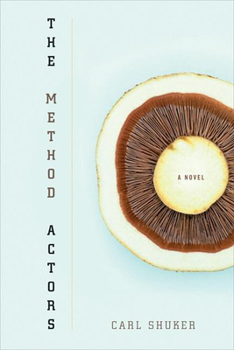The Method Actors
Customer Reviews
Rated 5 starsBrilliant
This is the best book I've read in years. It takes the best of David Foster Wallace and the best of Bret Easton Ellis and then wefts both of them into something entirely singular. It may not be the book for you if you're really concerned about plot, but if you love language, breathtaking prose, and intensely cerebral writing--it's for you.
0Report
Rated 5 starsintricate
Japan's relationship with the 'outside' has historically been complex at all levels: political, military, social, individual. This is no less true when the outsiders are inside, living and experiencing the culture and the distorted sense of reality that develops as a consequence. The knotty complexities are experienced intensely at an individual level by foreigners in Japan. 'The Method Actors', in depth and beautiful detail,...
0Report
Rated 4 starsGreat read!
I was once a "gaijin" in the Japanese community not so long ago, and this book has brought back a flood of memories. The book itself was written with a verbose style that I wholly enjoyed. It will forever sit on my shelf, and whenever I feel like bringing back some fond or detestable memories of Japan I shall refer to this book. Thank you Mr. Shuker.
0Report
Rated 5 starsMethod and Madness
Forget "Lost in Translation" and it's apathetic prettiness, forget the endless NYTimes "Japan-is-so-hip-right-now" lifestyle spreads, forget the tired "mystery of the east" tripe that is still getting trotted out in personal travelogues. "The Method Actors" is the first writing I have read that deals with modern Japan in a way that is compelling, brave and aesthetically challenging. Family, sex, hallucinogenic drugs, war...
0Report














